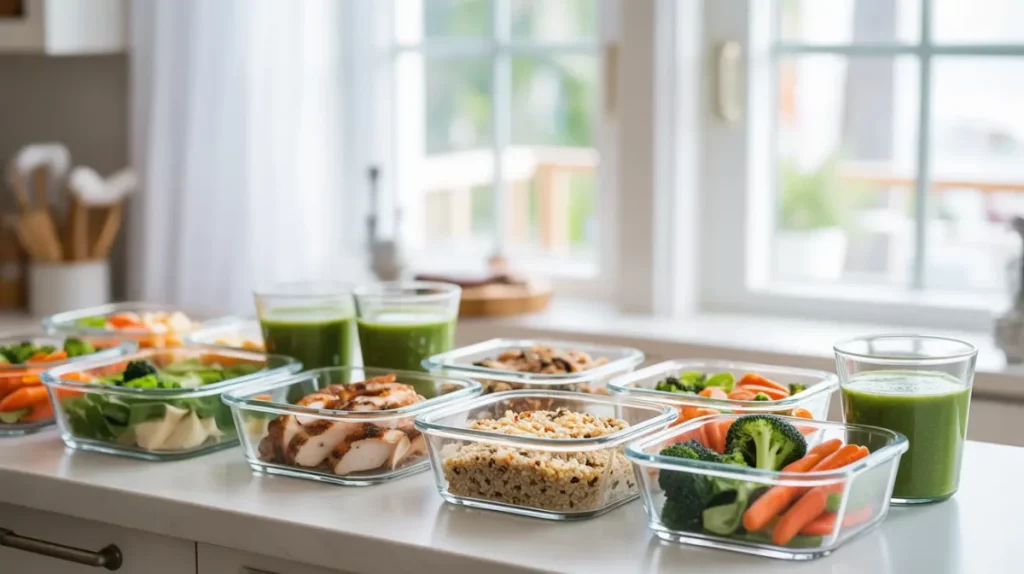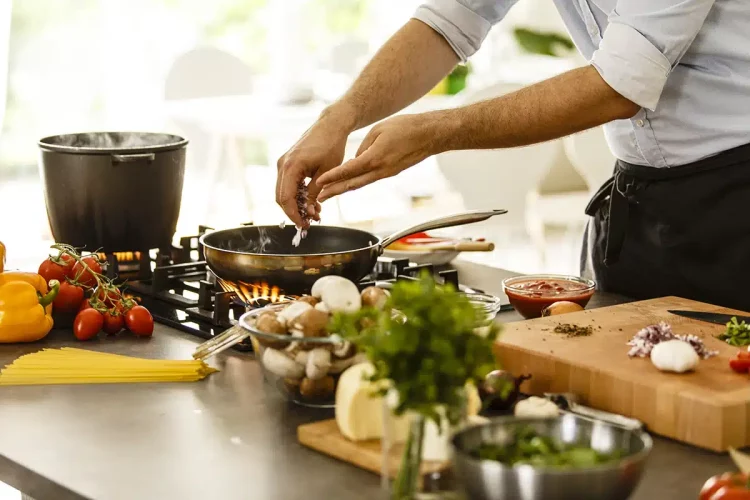In today’s fast-paced world, juggling work, family, social commitments, and self-care can feel like a high-wire act. For the busy multitasker, finding time to prepare nutritious, balanced meals can be one of the biggest daily challenges. This struggle often leads to reliance on takeout, quick processed foods, or skipping meals altogether—none of which support long-term health or energy levels. Enter batch cooking: a strategic meal planning approach that promises to save time, reduce stress, and help maintain a balanced diet amid chaos. But is batch cooking truly the key to a balanced life for multitaskers? Let’s explore how this method works, why it suits busy schedules, and smart strategies to tailor it to varied nutritional needs.
Understanding Batch Cooking and Its Benefits
Batch cooking involves preparing large quantities of food at once, portioning them out, and storing meals or ingredients for consumption over several days or even weeks. This contrasts with daily cooking where meals are made from scratch every day, which can be time-consuming and mentally taxing.
For multitaskers, batch cooking offers several advantages. First, it drastically cuts down daily cooking time—one cooking session can cover multiple meals. This frees up precious time to focus on work, family, or relaxation. Second, it minimizes decision fatigue. Knowing that a healthy meal is already prepared reduces stress around “what to eat” and limits impulsive food choices. Third, it encourages better nutrition by making it easier to stick to planned, wholesome meals rather than resorting to fast or processed options.
Additionally, batch cooking can reduce food waste and grocery costs through better ingredient planning and efficient use of bulk items. For multitaskers aiming for balanced living, this approach aligns convenience with wellness, offering a sustainable way to eat well without sacrificing precious hours.
Tailoring Batch Cooking to Varied Nutritional Needs
One common misconception is that batch cooking leads to repetitive, boring meals that don’t suit diverse dietary requirements. However, with thoughtful planning, batch cooking can be customized to fit any lifestyle—whether you are vegan, gluten-free, managing diabetes, or simply aiming for balanced macronutrients.
Start by identifying your personal nutritional goals: Are you prioritizing high protein for muscle recovery? Focusing on fiber-rich foods for digestion? Or balancing low-carb meals for blood sugar control? Once you know your key needs, choose versatile ingredients that can be repurposed across meals.
For example, a batch of roasted vegetables can become a side dish, a salad topper, or a filling for wraps. Cooked quinoa or brown rice can be used in bowls, soups, or stuffed peppers. Batch cooking protein sources like chicken breasts, tofu, or legumes can easily be mixed into different recipes throughout the week. Including a variety of herbs, spices, and sauces allows flavor customization, preventing meal fatigue.
Meal prep containers labeled by meal and date help multitaskers stay organized and mindful of food rotation. This system supports adherence to dietary needs and ensures freshness. Batch cooking is not one-size-fits-all but a flexible framework adaptable to your unique lifestyle.

Strategic Meal Prep Ideas for the Busy Multitasker
To make batch cooking effective for busy schedules, strategic planning is essential. Here are some practical ideas tailored to multitaskers’ realities:
- Choose One Day for Cooking: Designate a weekly “meal prep day” where you focus solely on cooking. Block out 2–3 hours for chopping, roasting, boiling, and assembling meals.
- Mix and Match Base Ingredients: Prepare large portions of base ingredients like grains, proteins, and roasted veggies. Mix and match these with different sauces, dressings, or spices throughout the week to create varied meals.
- Use Slow Cookers and Instant Pots: Utilize appliances that save hands-on time. Slow cookers and Instant Pots allow multitaskers to set cooking and continue with other tasks, making batch preparation efficient.
- Prep Snacks and Breakfasts Too: Don’t overlook non-lunch/dinner items. Batch-make overnight oats, energy balls, chopped fruit cups, or hard-boiled eggs for quick grab-and-go options.
- Incorporate Freezer-Friendly Meals: Cook large batches of soups, stews, casseroles, or homemade sauces that freeze well. Portion and freeze to have ready-made meals for extremely busy days.
- Keep It Simple and Realistic: Choose recipes that don’t require dozens of ingredients or complicated techniques. Simple roasted chicken, steamed veggies, and grain bowls often work best.
- Mind Portion Sizes: Use portion control containers to avoid overeating and make it easier to grab the right meal size depending on your hunger or activity level.
- Rotate Themes for Variety: Pick different cuisine themes each week—Mediterranean, Asian, Mexican—to keep meals interesting and nutrient-diverse.
Overcoming Batch Cooking Challenges
While batch cooking offers many benefits, it comes with potential pitfalls. Some multitaskers struggle with finding the initial motivation or feel overwhelmed by prepping large quantities. Others find it challenging to keep meals exciting or face storage limitations.
To overcome these, start small—perhaps batch cook just two or three meals a week before scaling up. Use freezer space wisely, and invest in stackable, BPA-free containers that maximize fridge and freezer capacity. Experiment with spices and condiments to add flavor variety. Involve family or roommates in meal prep to share the load and add social enjoyment.
Meal prepping apps or planners can also help streamline ingredient shopping, recipe ideas, and scheduling, reducing cognitive overload. Remember, batch cooking is a skill that improves with practice and personalization.
Batch Cooking and Work-Life Balance
For multitaskers striving for work-life balance, batch cooking is more than just a kitchen hack; it’s a lifestyle enabler. It provides the space and time needed to maintain nutrition goals without sacrificing other priorities. By reducing the daily “what’s for dinner” dilemma, multitaskers can focus mental energy on their careers, families, and hobbies.
Moreover, eating wholesome meals consistently can enhance energy, mood, and productivity—key factors for sustaining balance in demanding schedules. Batch cooking encourages a mindful approach to eating, slowing down mealtime chaos and promoting self-care in a busy life.
Conclusion: Is Batch Cooking the Secret to a Balanced Life?
Batch cooking presents a compelling solution for multitaskers looking to harmonize nutrition with a hectic lifestyle. Its blend of efficiency, flexibility, and health focus addresses common barriers to balanced eating, making it a powerful tool for holistic wellness. By embracing batch cooking with strategic planning and personalization, multitaskers can reclaim time, reduce stress, and nourish their bodies more effectively.
Ultimately, batch cooking isn’t just about food preparation; it’s about creating sustainable habits that support a balanced, energized, and fulfilled life. So if your schedule feels overwhelming, consider whether batch cooking might be the key to unlocking more balance and well-being in your daily routine.

















































